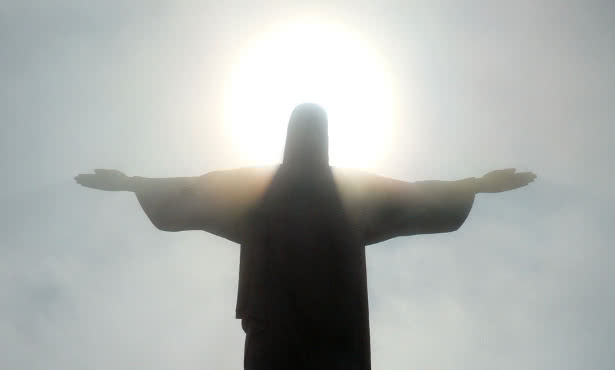Easter (Easter Sunday) or Pascha is the oldest and most important Christian feast, celebrating the Resurrection of Jesus Christ on the third day after his crucifixion, as described in the New Testament. Easter is preceded by Lent, a forty-day period of fasting and penance that starts on Ash Wednesday.
Moveable Feasts Related to Easter
Dates of many of the most important Christian holidays are related to the date of Easter. Below you can find a list of most of them in 2047 year. Please note that some of them are only observed by the Roman Catholic church while other by most of the Christian churches around the world. Their "popularity" also varies from country to country.
| Date | Holiday name | Time left |
|---|---|---|
| Tuesday, February 26, 2047 | Shrove Tuesday (Mardi Gras) | ~ 271 months & 1 week (8249 days) |
| Wednesday, February 27, 2047 | Ash Wednesday | ~ 271 months & 1 week (8250 days) |
| Sunday, April 7, 2047 | Palm Sunday | ~ 272 months & 2 weeks (8289 days) |
| Thursday, April 11, 2047 | Maundy Thursday | ~ 272 months & 3 weeks (8293 days) |
| Friday, April 12, 2047 | Good Friday | ~ 272 months & 3 weeks (8294 days) |
| Sunday, April 14, 2047 | Easter | ~ 272 months & 3 weeks (8296 days) |
| Monday, April 15, 2047 | Easter Monday | ~ 272 months & 3 weeks (8297 days) |
| Thursday, May 23, 2047 | Ascension of Jesus | ~ 274 months (8335 days) |
| Sunday, June 2, 2047 | Pentecost | ~ 274 months & 1 week (8345 days) |
| Thursday, June 13, 2047 | Corpus Christi | ~ 274 months & 3 weeks (8356 days) |
How is the date of Easter determined?
Easter is a moveable holiday meaning that its date varies from year to year. In Western churches, like the Roman Catholic Church, which use the Gregorian calendar, the earliest possible date is March 22, while the latest is April 25. However, these are very rare — the next time Easter falls on April 25 is in the year 2038, and the next time the date is March 22 will be in the year 2285. The most common date between the year 1900 and 2100 is April 19. Eastern churches, including the Eastern Orthodox Church, use the Julian calendar, therefore the date usually differs from the Gregorian calendar, even though the dates are computed in a similar way.
The date of Easter is determined as the first Sunday after the Paschal full moon falling on or next after the spring equinox (March 21 — a fixed date not the real, astronomical equinox). The Paschal full moon refers to the 14th day of the ecclesiastical lunar month and not the real, astronomical Full Moon, and its date is determined from tables. However, most often the two dates coincide, and between the year 1900 and 2100 there are only 18 differences between the dates calculated using the two methods. A well-known method of calculating the date of Easter was given by Carl Friedrich Gauss, however a simpler method was described by Jean Meeus in [1].
Early Easter Date Calculations
The first Christians followed the biblical Hebrew calendar and timed the observance of Easter in relation to the date of the Jewish Passover. Passover was celebrated by the Israelites to commemorate their deliverance from the slavery in Egypt. The Passover meal was eaten at sunset on the 14th day of Nisan (Aviv). Jesus was crucified on the 14th and rose from the dead some time before sunrise on the 16th day of Nisan. Because the Jews got away from the biblical Hebrew calendar (in 221 AD and further in 400 AD), and because the Christians wanted the date to be independent of the Jewish calendar, the First Council of Nicaea (325 AD) established the independent and uniform calculation of the Easter date.
Easter Celebrations
In many countries, Easter is a public holiday, and as it always falls on Sunday, some countries also have Easter Monday as a public holiday, including Australia, Germany and Ireland.
Although, Easter is the most important Christian holiday it is not as popular as Christmas. It joins two important events of which the first is profoundly sad and dramatic while the other is just the opposite. The first one is, of course, the Crucifixion and Death of Christ after which his body was placed in the tomb. Three days later he Resurrected beating death. Resurrection is a triumph of life and even more astonishing than the miracle of Christ birth.
In addition to religious celebrations involving Church services, Easter is celebrated in several ways in the United States, Europe and other parts of the world. Some of these celebrations have little to do with the Christian meaning of the holiday. The most popular include family meals, Easter eggs decoration, hiding the decorated eggs for children to find and giving children baskets with candy.
In the USA, the Spring break for high school and college students usually occurs about Easter time, hence many families leave the cold of northern states to visit amusement parks or sunny beaches in the south.
[1] Meeus, Jean H. Astronomical algorithms. Willmann-Bell, Incorporated, 1991.
